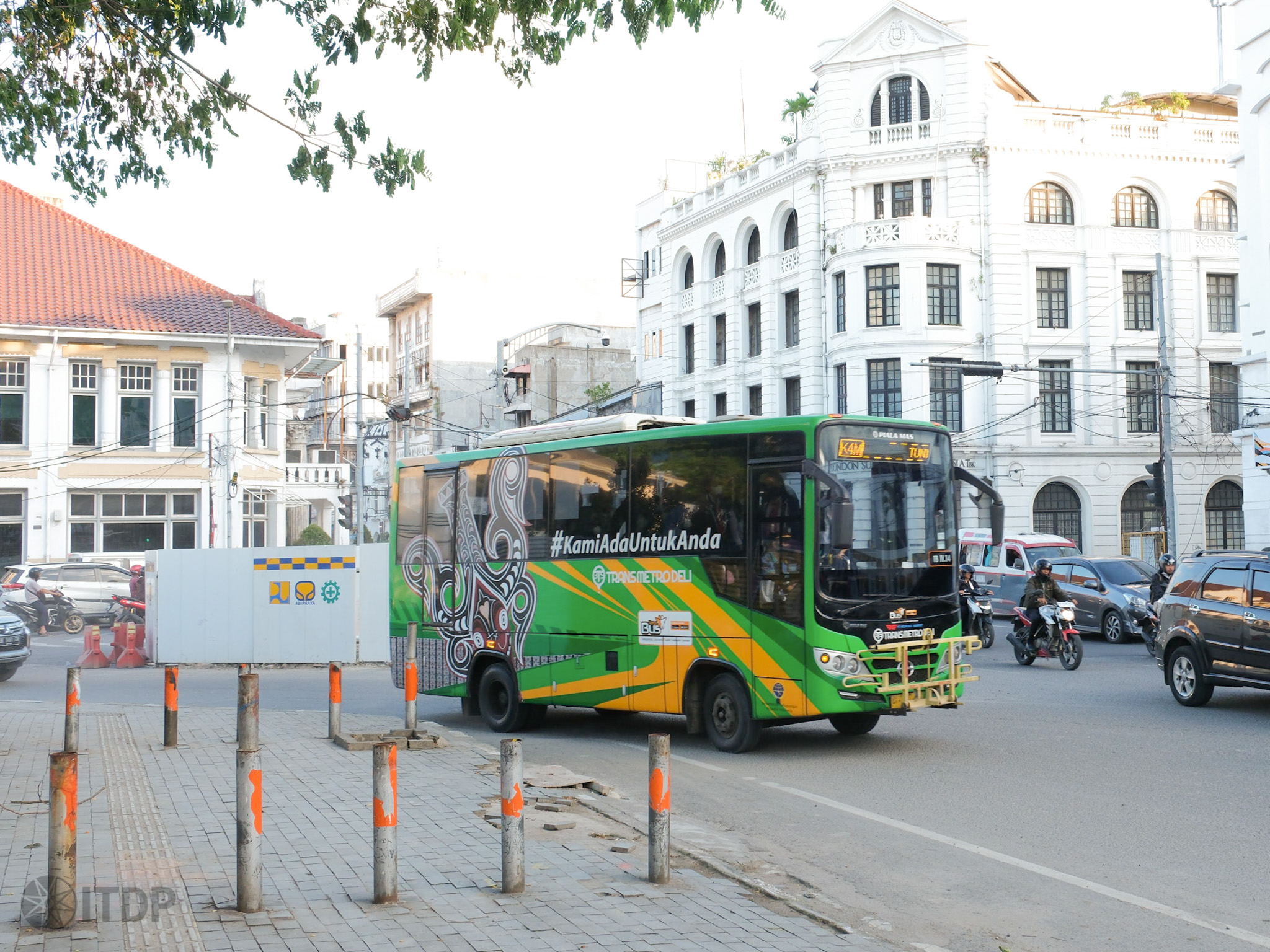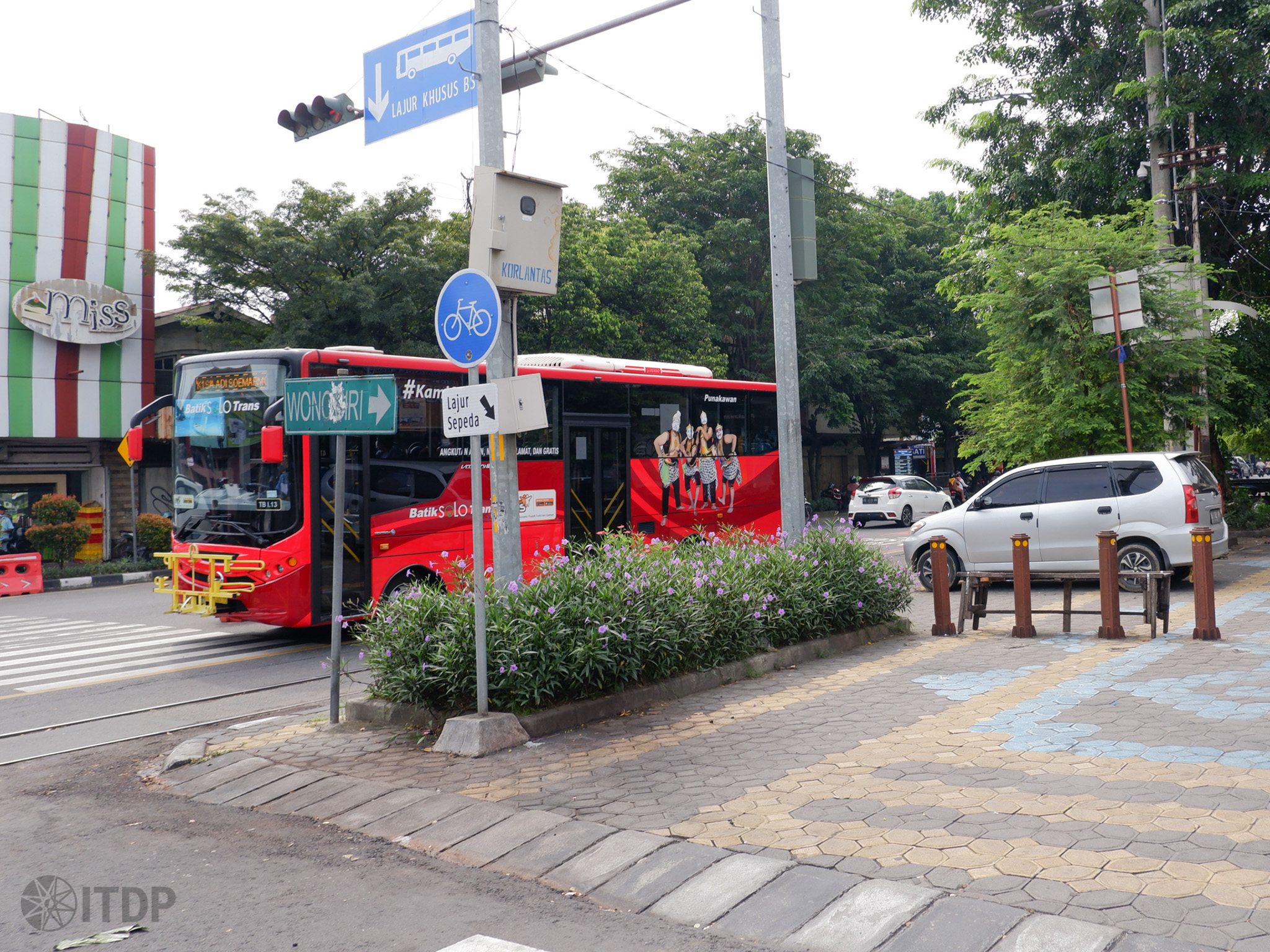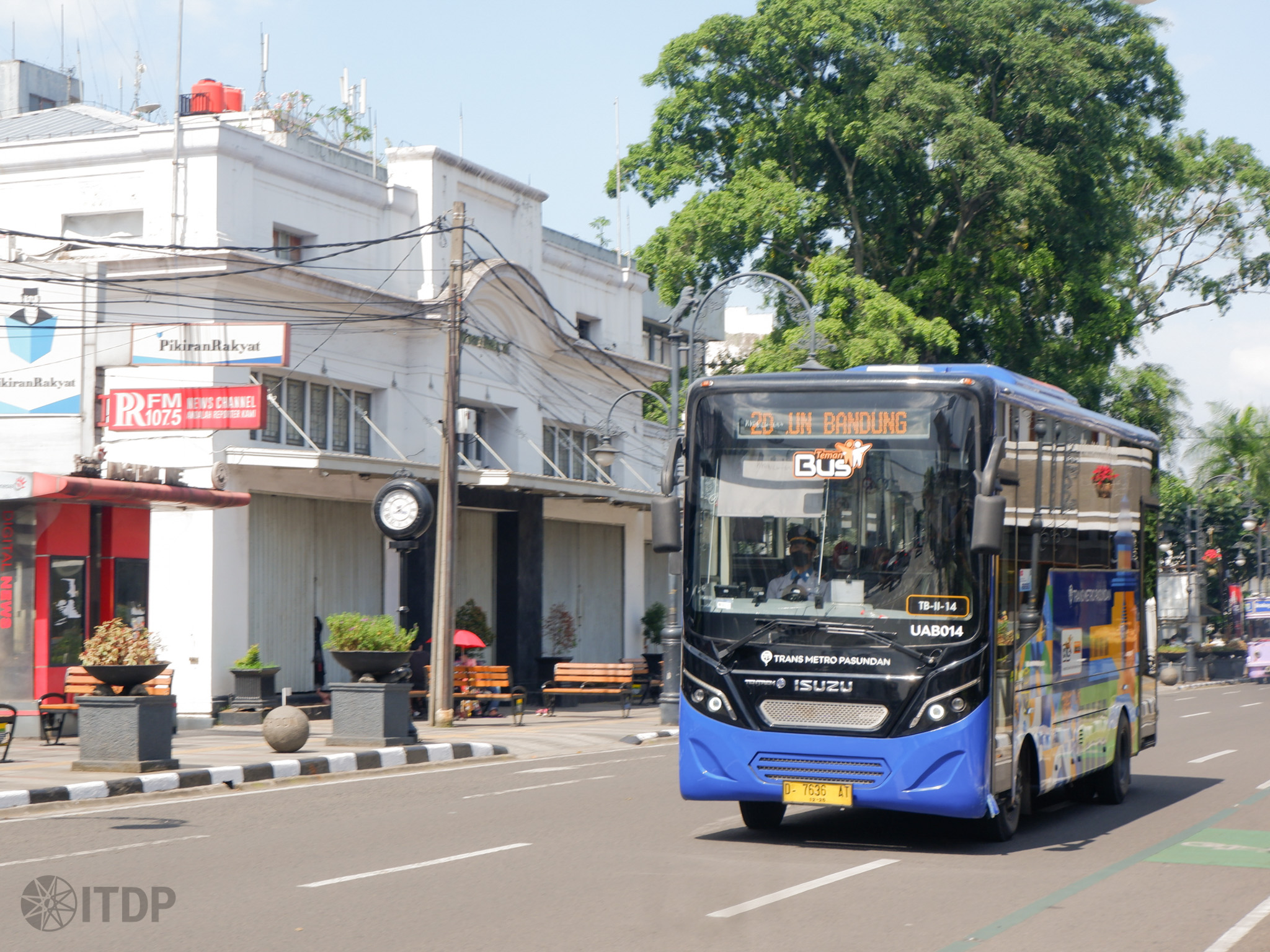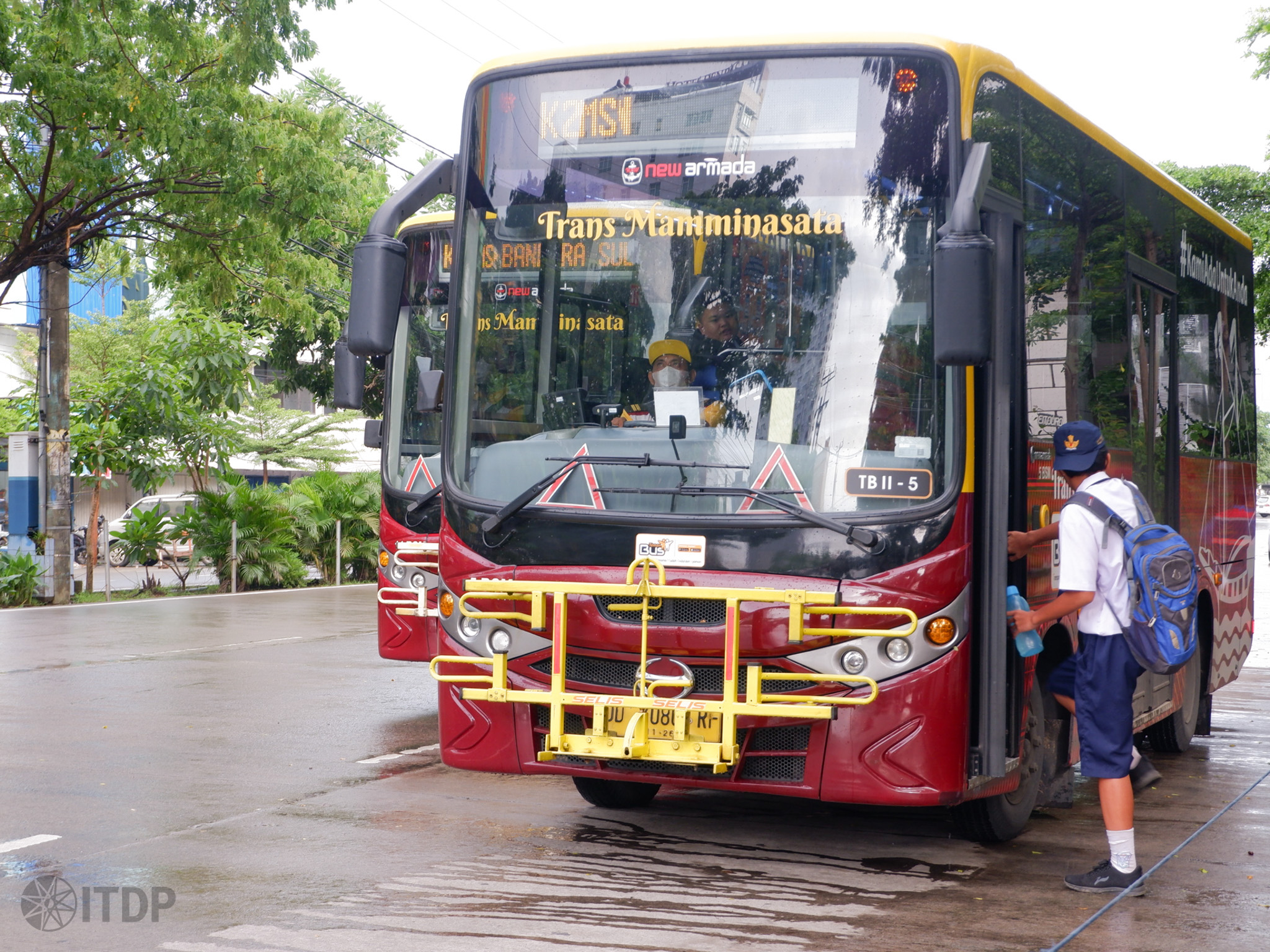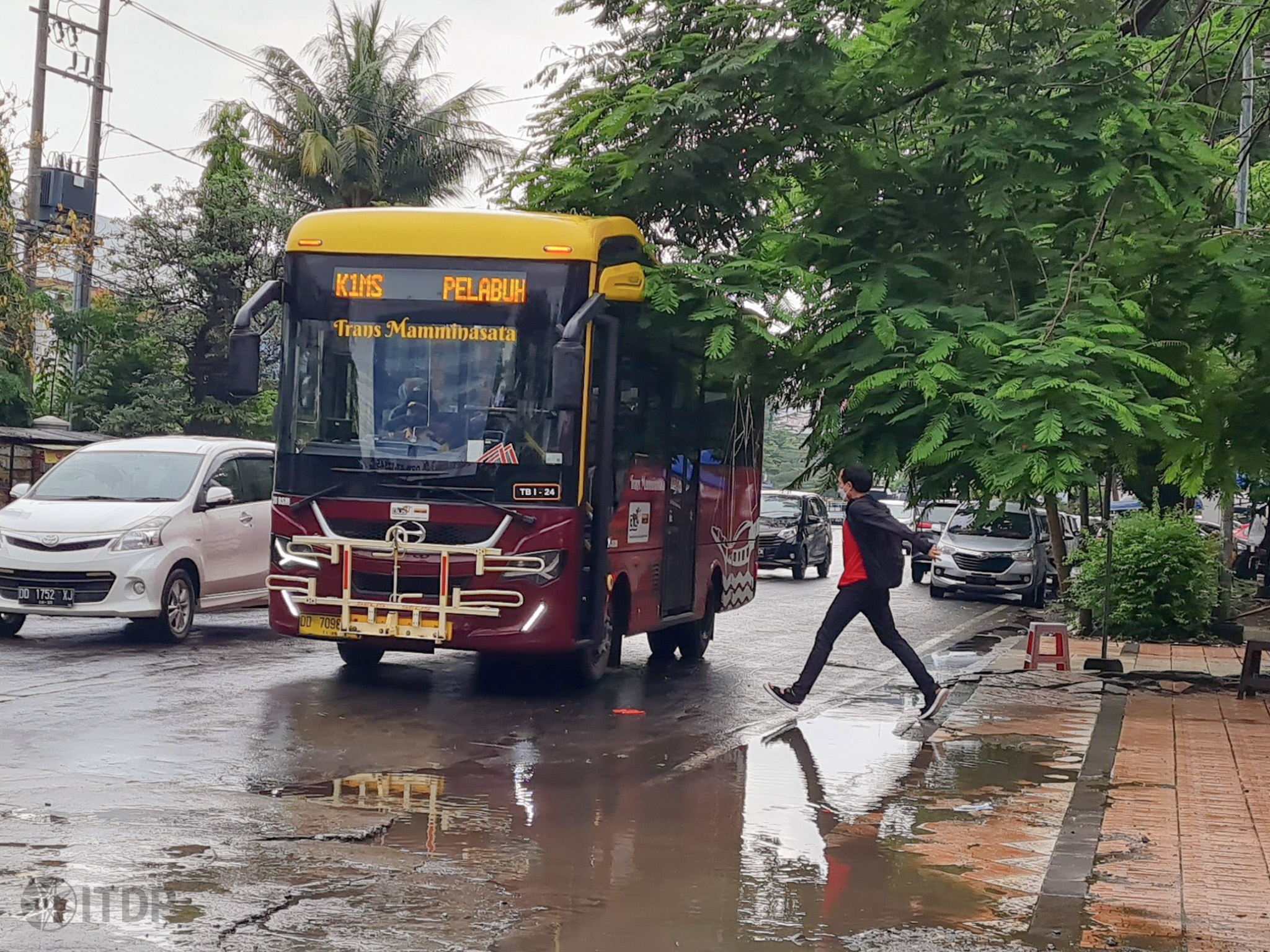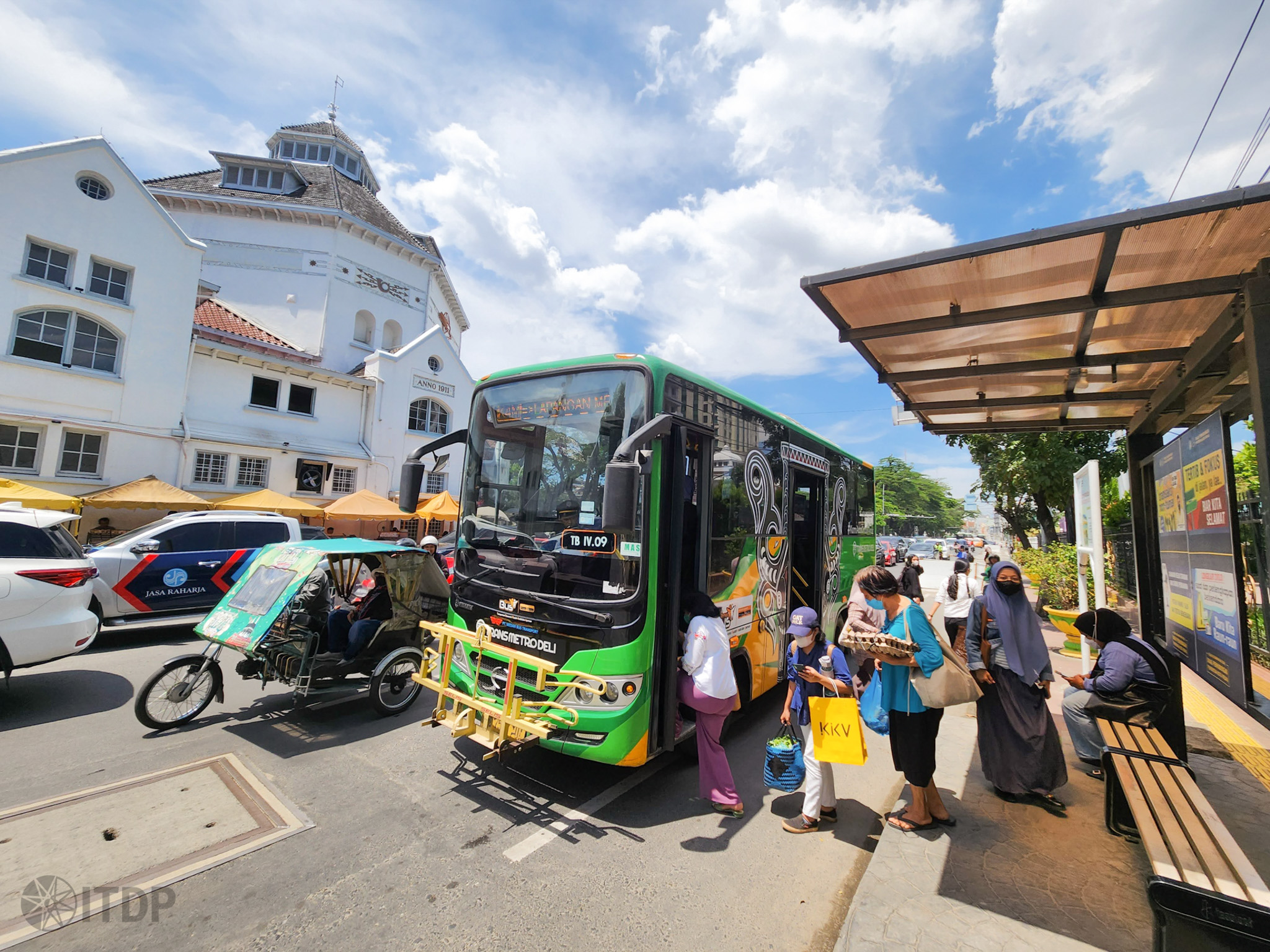August 04, 2023
BTS Teman Bus: Driving Public Transport Reform in Indonesia
Writer: Vinensia Nanlohy, Public Transport & Electrification Associate ITDP Indonesia
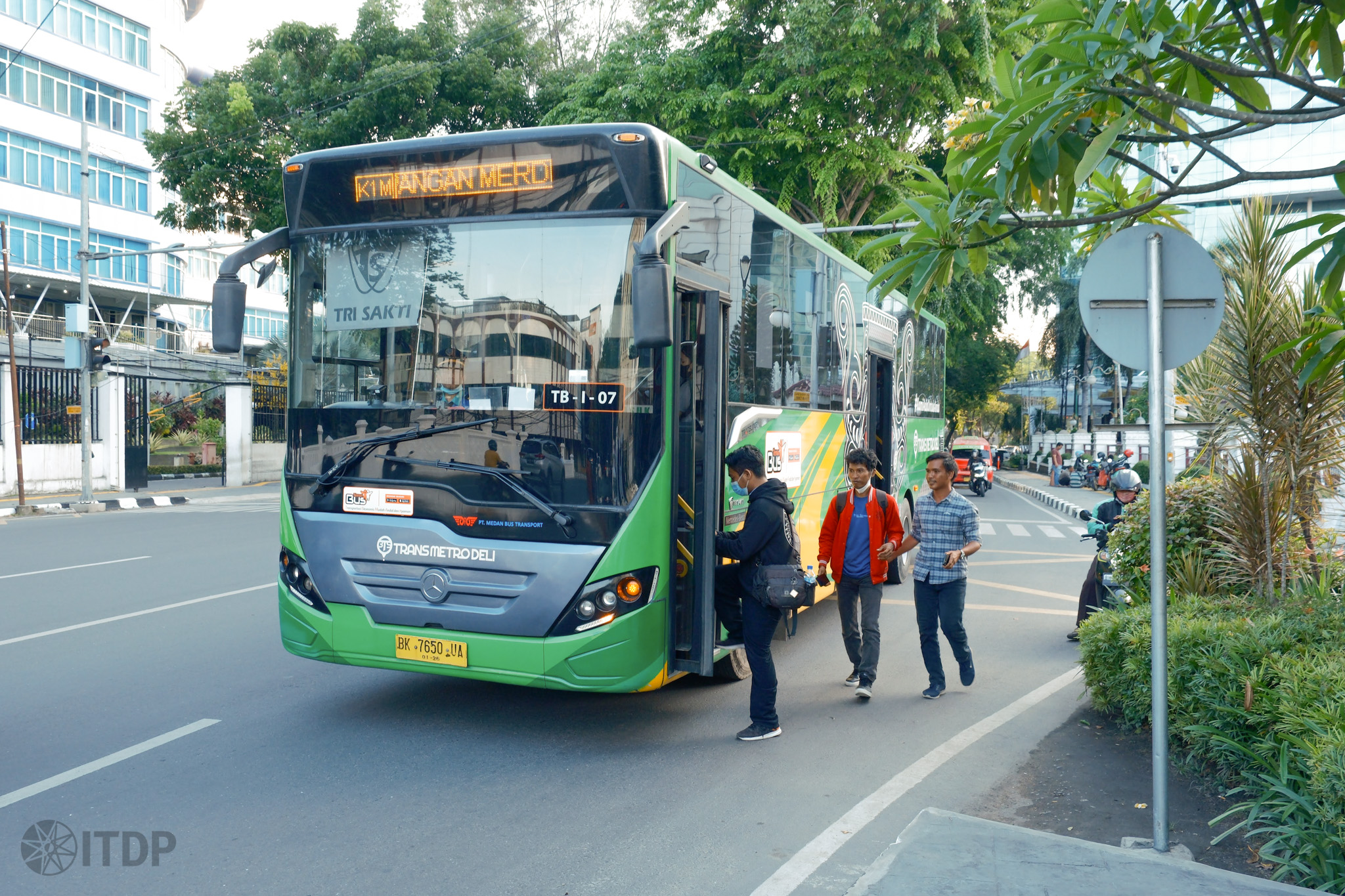
I was born and raised in Ambon, a small city in Eastern Indonesia. I could say that my experience with public transportation is quite limited to microbuses or known as “angkot”. A similar experience happened when I moved to Depok for my study, where the main public transportation modes available at that time were angkot and commuter line services.
I had a different experience when I lived in Sydney, Australia, to study. This city has several options of public transportation modes, including buses, trains, metros, light rail transit (LRT), and ferries, which are reliable, safe, and comfortable, and also have been integrated on infrastructure and payment systems. This experience made me wonder, should Indonesian cities also have such public transportation services? Not necessarily all modes, but at least one mode of public transportation that is reliable, safe, and convenient to support citizen mobility.
Working at ITDP gives me an opportunity to learn about public transport conditions in Indonesia as a whole, not only in Jakarta but also in other cities, such as Medan, Bandung, Semarang, Surakarta, and Makassar. Each of these cities has its own characteristics regarding its public transportation services. Unlike the majority of cities in Indonesia that still rely on angkot, the main public transportation mode for people in Semarang City has been served by Trans Semarang, a public transportation service managed and financed by the Semarang City Government since 2009.
While in Surakarta, the mobility of its citizens has been served by Batik Solo Trans, which is a public transportation provision program carried out by the Ministry of Transportation or known as “buy the service (BTS) Teman Bus” and has been implemented since 2020.1 The purpose of this program is to tackle traffic congestion problems, reduce the impact of air pollution and traffic accidents due to the high use of motorized vehicles in Indonesian cities.2
Besides Surakarta, the BTS Teman Bus program has also been implemented in several cities in Indonesia (see Figure 3), including Medan, Bandung, and Makassar. This is a good program, and we should appreciate it, as it provides mobility options for those cities. However, different from Surakarta City, people in several BTS Teman Bus cities, such as Medan, Bandung, and Makassar, still rely on microbus services as the main public transportation mode, so that it causes the low number of Teman Bus passengers. In addition, there were protests from public transportation operators in a few cities regarding this service. Why did this happen?
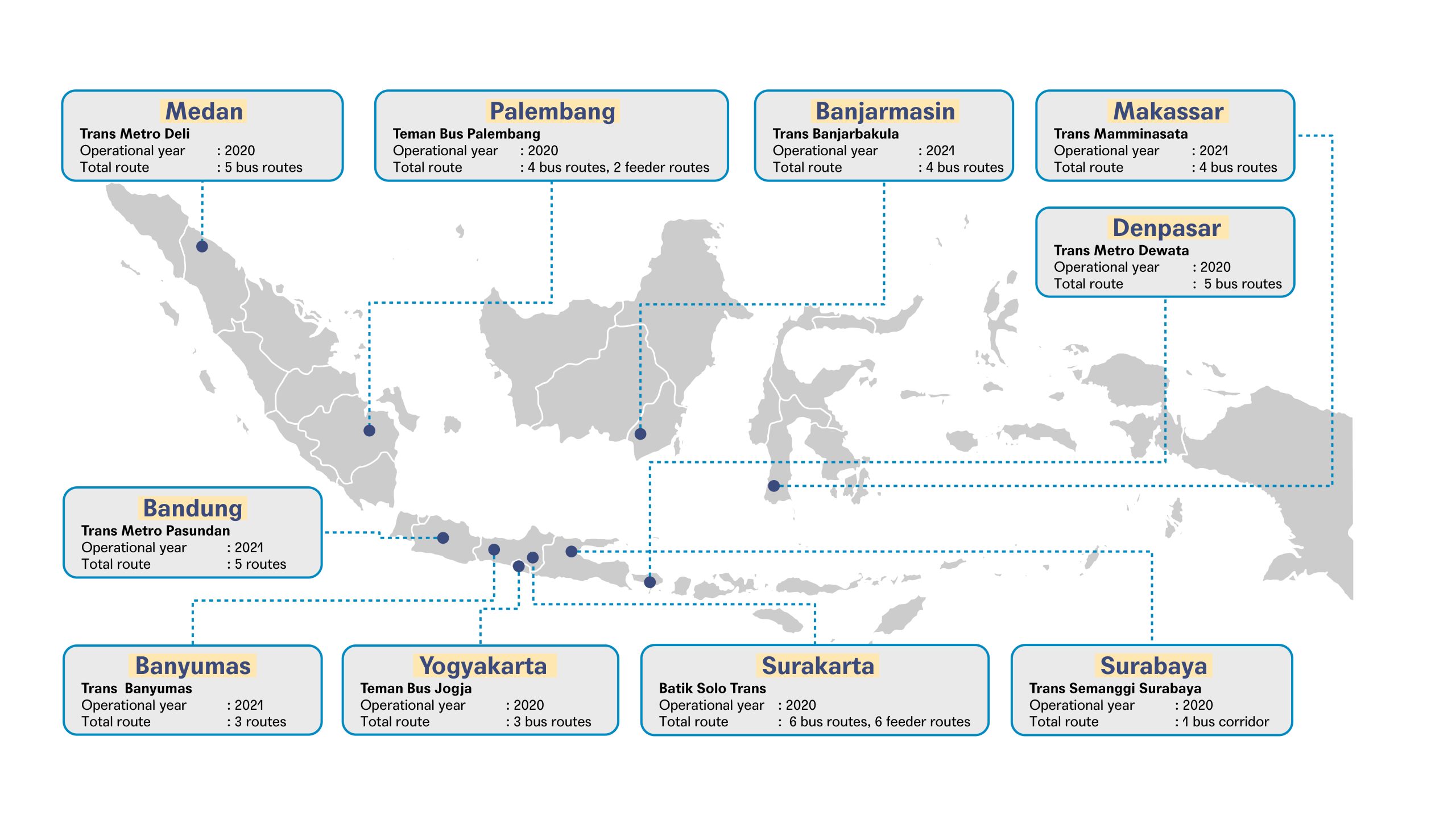
The Need of Public Transportation Planning
One of the problems with the BTS Teman Bus program is the low number of passengers, which can be caused by several aspects. First, it might be because of inappropriate route selection. Ideally, public transportation routes should be based on passenger demand. However, the results of ITDP Indonesia’s audience meeting with the Transportation Agency from all the BTS Teman Bus cities in July 2022 showed that most of the local governments that are currently receiving the support on this program still did not have a clear road map for public transportation planning for their regions3.
Thus, it affects route selection for the BTS Teman Bus service, not based on demand, but focusing on opening new routes to increase the service coverage of public transportation in the area or to avoid conflicts with existing public transportation operators. As a result, passengers on these routes tend to be low.
Another reason is because the facilities and infrastructure of BTS Teman Bus are still inadequate. In September 2021, the ITDP Indonesia team conducted a field survey together with vulnerable groups to evaluate the facilities and infrastructure of the Teman Bus program in Medan City, known as Trans Metro Deli. This survey concluded that although the Trans Metro Deli fleet service has fulfilled the comfort aspect, the fleet facilities and supporting infrastructure still need to be improved. In terms of the bus fleet, the use of high-deck buses causes a high gap from the sidewalk or bus stop to access the fleet, making it less accessible for vulnerable groups.
Another issue found in the field is the availability of information and the availability of inadequate sidewalks around the stopping points of the Teman Bus service, so that it is less attractive for people to use this service. This issue was not only found in Medan City but also in Makassar City (Trans Mamminasata) during the ITDP Indonesia survey conducted in January 2023.
Lack of Coordination between Relevant Stakeholders
Another problem with the implementation of BTS Teman Bus is the lack of coordination between relevant stakeholders. This can be seen from protests from existing public transport operators against the implementation of the BTS Teman Bus program in several cities, for example in Medan City 4, Makassar5, and Bandung6. This protest was due to the fact that the government, as the owner of the program, failed to communicate the implementation of this program to existing public transport operators. As a result, public transport operators perceived the program as their competitor. If it is well-planned from the beginning, the government might be able to discuss this plan with these operators, and invite them to join as partners in the Teman Bus system.
Other coordination issues that emerged in the implementation of BTS Teman Bus are between the national government as the organizer of the BTS Teman Bus program and local governments. This has an impact on the local government’s low support and ownership of the BTS Teman Bus program, for example in terms of the provision of facilities and infrastructure that are still inadequate and the lack of support for policies to limit private motor vehicles to support the operation of BTS Teman Bus services in the regions.
So, what are the possible solutions to overcome this problem and improve BTS Teman Bus service in Indonesia?
The problems above should be overcome if both the national and local governments have better planning and can communicate it with relevant stakeholders. At the planning stage, the national government as the owner of the BTS Teman Bus program should ensure readiness of the local government, for example, related to overall public transportation planning, commitments related to funding for BTS Teman Bus facilities and infrastructure, and commitments related to supporting policies for public transportation implementation within the regency/city/province.
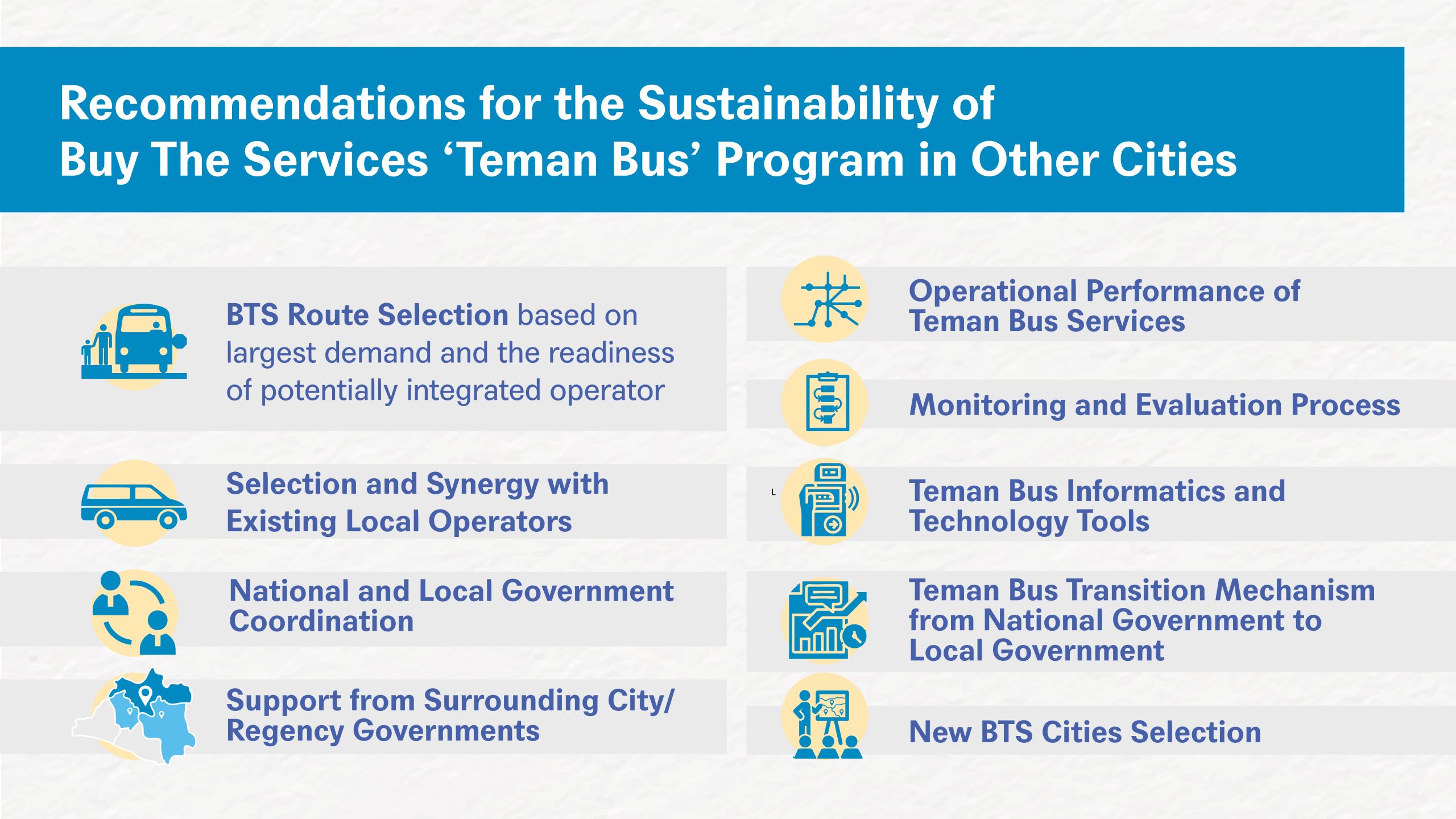
A comprehensive public transportation plan in the region will provide an overview of which routes that can be selected to implement the BTS Teman Bus program, which is based on demand analysis. In addition, at the planning stage, the government should also communicate this plan and invite existing public transportation operators, especially those affected by the operation of the BTS Teman Bus service, to collaborate as partners in this service. This is to minimize potential social conflicts in the field when the BTS Teman Bus service is implemented.
In addition, commitment from the local government in terms of finance is also needed from the beginning, as it will have an impact on the provision of adequate BTS Teman Bus facilities and infrastructure, such as bus stops, information at bus stop, and supporting infrastructure such as sidewalks to access BTS Teman Bus service. Convenient access, the availability of adequate facilities and infrastructure, and the availability of clear information can attract more public to use the BTS Teman Bus service. Commitment from the policy aspect is also needed, for instance, legalizing policies related to restriction of private motorized vehicles usage into regional regulations, in order to force people to switch to using public transportation.
The BTS Teman Bus program is basically a good program and should be appreciated. However, it is necessary to carry out well and carefully from the planning stages, and ensure commitment and cooperation between all stakeholders in the implementation of BTS Teman Bus, to improve current services, and to attract more people to switch to use this service.
1Kemenhub: Buy The Service Sudah Angkut 1,2 Juta Penumpang. Republika (November, 2022). https://ekonomi.republika.co.id/berita//qk00i1383/kemenhub-buy-the-service-sudah-angkut-12-juta-penumpang?
2Optimalisasi Buy the Service untuk Mengurai Kemacetan di Perkotaan. Kementerian Perhubungan (2020). https://dephub.go.id/post/read/optimalisasi-buy-the-service-untuk-mengurai-kemacetan-di-perkotaan
3Dokumentasi Evaluasi Program Buy-The-Service Teman Bus di Indonesia. ITDP Indonesia (Februari, 2023). https://itdp-indonesia.org/publication/dokumentasi-evaluasi-program-buy-the-service-teman-bus-di-indonesia/
4SOPIR Angkot Demo, Keluhkan Bus Trans Metro Deli Tetap Gratis meski Sudah 2 Tahun Beroperasi. Tribun Medan (Februari, 2022). https://medan.tribunnews.com/2022/02/21/sopir-angkot-demo-keluhkan-bus-trans-metro-deli-tetap-gratis-meski-sudah-2-tahun-beroperasi.
5 Sopir Pete-pete di Makassar Demo, Protes Beroperasinya Bus Trans Mamminasata. Kompas (Desember, 2021). https://regional.kompas.com/read/2021/12/15/145831578/sopir-pete-pete-di-makassar-demo-protes-beroperasinya-bus-trans-mamminasata
6TMP Beroperasi, Sopir Angkot Soreang-Leuwipanjang Meradang. Detik.com (April, 2022). https://www.detik.com/jabar/berita/d-6031790/tmp-beroperasi-sopir-angkot-soreang-leuwipanjang-meradang

